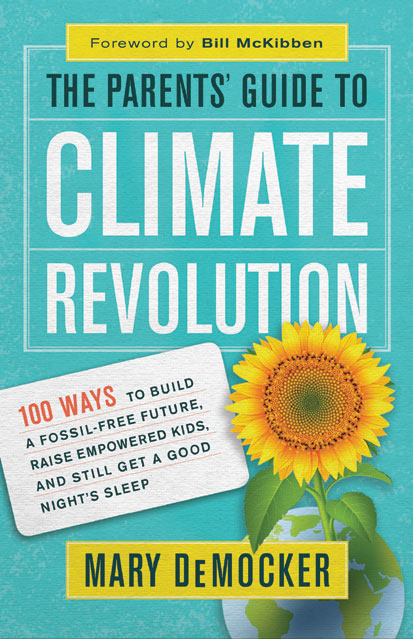Every parent wants to raise healthy, happy kids. We also want children to learn to advocate for themselves, both on the playground and in the global village.
In our quest to get it “right,” many parents join the push for early reading and skill-building while simultaneously becoming over-involved and over-protective, all of which often does little more than stress everybody out. The following tips help families relax and, paradoxically, empower kids to become world-changers.
Let them be kids:
At bedtime one night, my four-year-old nephew said to his mom, “I don’t want to be alive anymore. The Earth will die, and I don’t want to be here when everything’s dead.” Like many children, he’d absorbed our culture’s steady dirge about drowning polar bears and deadly super storms. His mother reassured him, but it reminded me that society, with its “save-the-Earth!” message on everything from kids’ games to breakfast cereals, can inadvertently burden young minds and hearts. Young children need to know adults are in charge and things will be okay. As one 14-year-old testified to our city council while requesting climate action, “What kids want most is freedom from fear.”
One way to lighten young hearts is to shield them from TV, especially news, with its searing, rapid-fire images. When children encounter real-life sorrows, such as the clear cutting of a beloved forest, parents can validate their grief and outrage, reminding them that many adults are working to protect forests. By broadcasting “We’ll take care of you” messages, parents free children to learn about and love the world at a healthy, childlike pace.
Empower them:
Child-led play fuels young imaginations and sense of agency in their world. That requires ample down time, adult non-interference, and the occasional magic wand. Even one box of sidewalk chalk on an apartment balcony can provide endless fun, especially if parents don’t stop kids from grinding chalk into “potions.” Kids benefit from imagining sandcastles, tree houses, and couch-cushion forts and then manifesting those visions through unhurried trial and error. This kind of master-of-the-world play is profound for developing children’s capacity to design and build their lives—and democracies.
Kids also need to develop muscles and coordination through joyful, free movement and physical risks such as leaping, climbing, balancing, and, yes, sometimes falling. Leisurely hangouts at the park or beach help on this front, and the occasional scrapes are well worth the sense of freedom. Children are also empowered by learning mastery over fire, knives, and, eventually, power tools, not just because those tools develop focus and problem-solving skills, but because they help kids build and survive—in the real world.
Unplug them:
Screens, like razor blades and matches, can either serve or harm. The same holds true for mobile technology, with its 24/7 social media frenzy, addictive games, and ferocious marketing. It’s harder than ever to keep kids in the real world, especially now that adults have fallen down the rabbit hole ourselves. To keep screens in their proper places—as servants to a rich, connected family life—parents can remember two things:
1) Marketers are trying to get our kids screen-addicted.
2) Parents stand between children and those marketers—and we make family rules.
Saying “no” to screens is easier when we’re also saying “yes” to fun. We stock our living room with games, art supplies, and ukuleles—music is both fun and good for brains—and our backyard with sports equipment and, as often as possible, live people to play with. Our neighbors loaded a wall of pegs with dress-ups. My in-laws dedicate one room just for Lego-building. Find ways to encourage real-world play that work for your family.
Help them find reliable information:
As kids mature, they learn about the risks associated with drug use, sexual activity, and mental health issues such as depression, anxiety, and eating disorders. Learning to navigate all of this—and get help when necessary—empowers teens entering adulthood.
Climate breakdown also poses a threat to children—the biggest threat, in fact, that they face as a generation—which is why there’s growing demand for age-appropriate climate literacy in schools. Kids usually enjoy learning about interconnected natural systems that support their lives, and they certainly need tools for confronting our climate crisis. If your kids aren’t learning accurate science and solutions, join with other parents and demand climate literacy from school officials.
At home, parents can help kids spot climate misinformation, whether from textbooks, museums, or public officials. For accurate information, try Inside Climate News, Yale Climate Connections, or Bill Nye’s shows. For help teaching overall media literacy, consult Commonsense Media.
Help them engage:
Kids face threats most of today’s parents never had to, including school shooters, online bullying, more frequent natural disasters, shifting immigration policies, and growing racism, sexism, and intolerance fueled by top government officials. Parents can listen to children, ask questions, and help them engage in positive solutions. If kids want to share their perspective, help them find a microphone, column space, or leadership opportunities. Model what it looks like to be a citizen imagining—and working toward—a better world.
Most importantly, help them connect with other change-makers. As teens demanding gun law reform are discovering, nothing inspires kids like other kids. And when they speak up together, young people can, through trial and error, eventually influence decision makers and re-shape the world.
Based on the book The Parents’ Guide to Climate Revolution, © 2018 by Mary DeMocker. Reprinted with permission from New World Library. NewWorldLibrary.com.
Mary DeMocker is the author of The Parents’ Guide to Climate Revolution. She uses the arts to fight for a livable planet, and is cofounder of 350.org’s Eugene, Oregon chapter. She speaks frequently about creative ways to make the world more healthy, just, and fun. Her website is marydemocker.com.

















